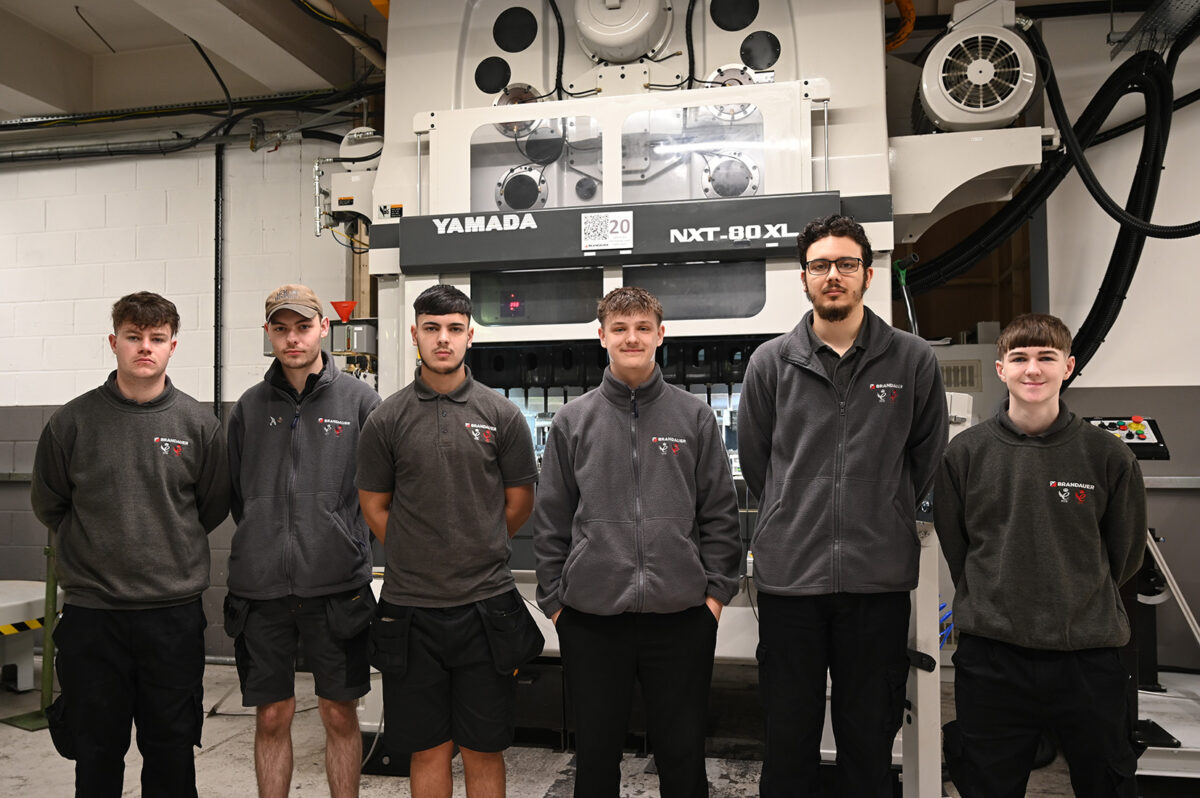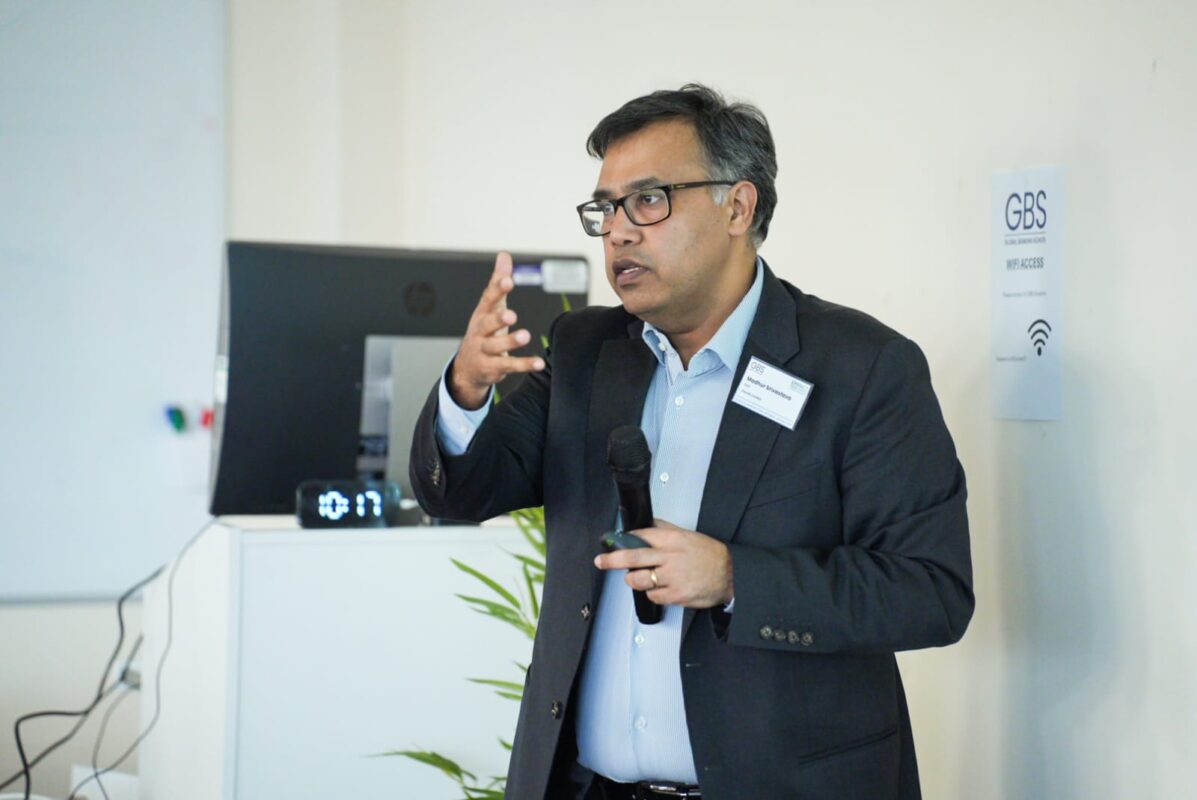Creating a more resilient education system built on technological and digital foundations

Today, (20 January), School Standards Minister @NickGibbUK spoke to the @Bett_show ‘s online #BettFest conference, which focuses on how innovation and technology can improve education:
I’d like to thank the organisers, and the many teachers and leaders in schools and colleges attending today, for taking the time to come together to share your views and experiences about the increasing role of technology in education.
Events such as these have historically focused on innovations in technology and education, and exploring the possibilities ahead of us.
This year we find ourselves in a very different context. Debate about technology in education today is now more about the basic essentials of effective education. It’s about how technology can ensure access to education for all students during periods of national lockdown. It’s about how technology can support effective remote teaching. And it’s about how technology can help teachers keep in touch with pupils to monitor attendance, progress and wellbeing.
The current period of schools and colleges being closed to most pupils will help limit contact between individuals, which, in turn, will limit the spread of the virus. It is vital that we all play our part to protect the most vulnerable in society and avoid overwhelming the NHS.
I know, however, that for teachers, school and college leaders, parents and pupils themselves, this period of lockdown has brought further uncertainty and renewed challenges.
But, despite these challenges, we have to persevere. Access to a high-quality education is the right of all our children and young people, and our recently adapted expectations for schools and colleges will ensure they continue to receive this right.
So, today, I’d like to focus on remote education – from the incredible shared response across the sector in adapting to changing circumstances, to how we can continue to give our students the high-quality teaching that is the hallmark of our sector.
As Schools Minister, it’s my privilege to meet regularly with teachers and school and college leaders across the country. At a recent roundtable, we gained valuable feedback and insights on the sector’s response to remote education and heard about the positive and sustainable opportunities for change that the coronavirus response has created.
Despite the restrictions, these rich conversations have continued, and in the last year, two key messages have come across from those I have spoken to:
- Firstly, a relentless commitment to making sure that all pupils, in all circumstances, should continue to have access to a good education – to thrive whether in class or at home.
- And secondly, that those same teaching practices that are most effective in the classroom, remain the same at home. That they mustn’t be lost amongst the raft of other pressures.
In tackling these two ambitions, we have seen schools and colleges adapting in extraordinary ways. You will hear from many of these schools and colleges in the next three days at BettFest. You will hear how leadership strategies have been adapted to reduce workload and how the use of existing tools has been adapted to support effective curriculum delivery and improved outcomes for all.
I am delighted to see that some of the EdTech Demonstrator schools are here today, showing how technology can be implemented effectively – whether you’re a small primary school like Danesfield who are using technology to support teacher CPD and reduce workload, or a large college like Heart of Worcestershire who have been using technology to support their students in vocational settings and to help develop digital skills.
Improving digital access and inclusion
Over the past year, the Department has listened to you and learnt from you and we have used this to build on the positive steps we were already taking before the pandemic to develop new ways to meet the needs of students.
We know that Covid-19 has been particularly tough for disadvantaged families and those with additional needs. That is why, through collaborations with the education, care and technology sectors, we have strived to improve digital access and inclusion across the country to ensure all children and young people continue to have access to education.
We have ramped up our devices scheme – one of the largest procurement programmes of its kind in the world – securing 1.3 million laptops and tablets for disadvantaged children and young people across the country to have access to quality remote education and online social care services.
The Department continues to deliver routers for pupils without connections at home and, with thanks to the support of some of the UK’s leading mobile operators, the Department is providing free data to disadvantaged students to help them get online for remote education. The Department continues to invite a range of mobile network providers to support this offer.
EdTech Demonstrator Schools and Colleges
To ensure effective and timely communication and teaching, the Department has also partnered with Microsoft and Google so that over 6,500 schools (and counting) can share resources, monitor pupil progress, provide feedback and deliver teaching through online platforms.
Many schools have shown that technology can be a powerful enabler which enhances effective teacher-led instruction. For many teachers, this has often meant learning new digital skills to supplement their evidence-based teaching practice, which is why I would like to extend my thanks and congratulations to the Demonstrator Schools and Colleges. This programme has been pivotal in ensuring that teachers and leaders in over 10,000 schools and colleges have been able to use technology effectively to strengthen their remote education and maintain high quality delivery of the curriculum.
The Department also recognises that there are children and young people across the country that have additional needs that might make remote education even more challenging. We have responded to this by providing additional funding to the Demonstrator National Star College to show how assistive technology can be applied in mainstream settings. We are also providing £40 million to the Family Fund this year to support families on low incomes raising children and young people with disabilities or serious illnesses. £13.5 million of this is to specifically address needs arising from the pandemic, which may include assistive technology to aid remote learning.
National Tutoring Programme
We know that education has been disrupted for many during this pandemic, with disadvantaged pupils at further risk of falling behind compared to their peers. To tackle this, we are spending £350 million on our National Tutoring Programme to provide catch up support, ensuring that there is quality, tailored provision available at scale. Much of this will be supported by online provision to reach as many young people as possible across the country.
Of course, ensuring that students and staff have the right digital tools in place is only part of solution. Schools and colleges also need the support in place to continue to deliver a high quality, well sequenced curriculum.
I have been struck by the dedication and enthusiasm of our school and college teaching staff to help support this. For example, Oak National Academy has seen teachers rallying together to provide video lessons in a broad range of subjects from Reception to Year 11. So far, over 3 million users have visited the Oak National Academy platform and over 17 million lessons have been viewed so far.
National College Collaboration Fund
Equally, through our National College Collaboration Fund, we have funded seven projects focussed on producing digital content and resources for specific subject areas. The first tranche of these resources can be found within our remote education service “Get Help With Remote Education”, which brings together the latest resources, advice and guidance to support schools and colleges during Covid-19.
Within this service, we also recently launched the “Review your Remote Education Tool” to support schools and colleges to meet basic requirements as well as evaluate and strengthen their provision. Developed by education, technology and research experts – many present today – this framework signposts schools and colleges to packages of support, including training opportunities, networks and practical advice and guidance.
Creating a more resilient education system, built on firm digital and technological foundations
These are concrete steps that we are taking – in partnership with schools, colleges and industry – to ensure we are meeting the needs of pupils and their families, in the areas where they are needed the most.
But we must also build on the successes and lessons of our Covid-19 response and ensure that the actions we take now are sustainable for future generations.
Yes, we need to make sure schools and colleges have the digital infrastructure in place to make the best use of technology, but it’s not about using technology for the sake of it. It’s about delivering a consistently high quality education and looking at where technology can support and enhance that.
For this reason, we are exploring options for a strategy to create a more resilient education system, built on firm digital and technological foundations, which improves outcomes for all children and adults in education.
But Government can’t do this alone.
Cementing England’s reputation as a world leader in education research
As we develop our strategy, we hope to continue collaborating with all of you to better understand the needs of schools and colleges, as well as staff and students within them. We will continue to listen and learn, using our research partnerships with the Education Endowment Foundation, with Nesta and the international EdTech Hub to investigate what does and doesn’t work when it comes to technology, and cementing England’s reputation as a world leader in education research.
I am hopeful that when schools and colleges open again, and when the effects of the pandemic are eventually a distant memory, the lessons that we have learnt will open the door to new opportunities for children to leave school shaped by a truly excellent education. I want to thank teachers and heads and principals for embracing these changes and opportunities.
While I know that we are all still navigating the almost totally virtual world we find ourselves in, I am confident that this period of time will support teachers to permanently adopt the relevant skills and confidence to use technology in a way that continues to enhance their practice.
It’s events like BettFest that epitomises the drive from teachers and leaders to ensure they can consistently provide the best possible delivery of education. Looking at the agenda ahead, BettFest is highly positive about the future and so am I.
Nick Gibb, School Standards Minister











Responses